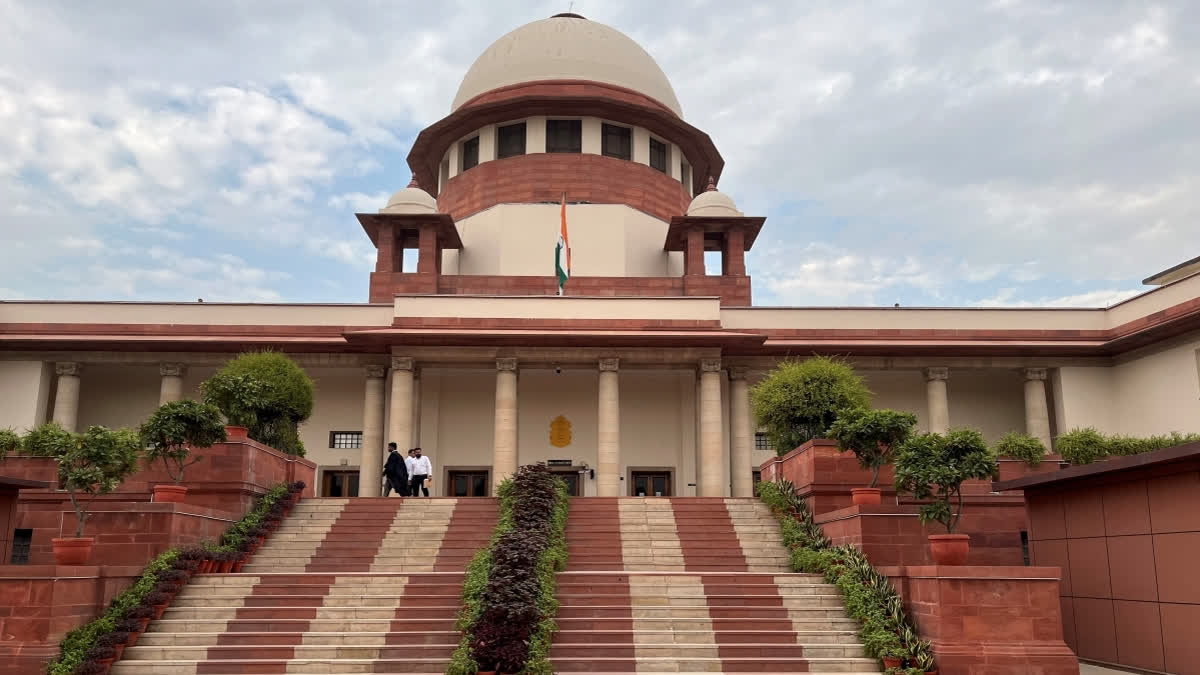New Delhi:The Supreme Court Tuesday asked the Centre how many people got the benefit of Section 6A introduced in the Citizenship Act following the Assam accord and further queried if very few people got it then it is a clear indicator that the rest are all illegal immigrants. The Centre said it will get back to the court with details. The apex court also observed that Section 6A of the Citizenship Act was enacted as a humanitarian measure, and it is interwoven in our history.
A constitution bench headed by Chief Justice of India (CJI) D Y Chandrachud and comprising justices Surya Kant, M M Sundresh, J B Pardiwala and Manoj Misra, commenced hearing on 17 petitions to examine the constitutional validity of section 6A of the Citizenship Act relating to illegal immigrants in Assam. Section 6A in the Citizenship Act was inserted as a special provision to deal with the citizenship of people covered by the Assam Accord.
The CJI asked Solicitor General Tushar Mehta, representing the Centre, “How many people took citizenship in pursuance of this provision when Section 6A was in practical operation? 6A is in force but the practical operation came to an end around July 16, 2013. How many people benefited from it?”
Mehta replied, “On that part, we will immediately start working on". The CJI said if very few people got it and it is a clear indicator that the rest are all illegal immigrants and stressed, “How many people actually got benefit of it?” Mehta said, “we will get the details…”. The CJI asked Mehta to check with the officers, how are they interpreting it – has 6A now come to an end completely in the sense, can somebody make an application today and say, give me the benefit of 6A and has that period come to an end on July 16, 2013?
The bench said Rule 19 (2), 6A says make an application to the registering authority in the manner prescribed and rule takes a cut-off date as July 16, 2013, and “for those who did not receive the order detecting them to be a foreigner, it just gave them 30 days from that date of notification”. “Do we take it now, nobody can take the benefit of Section 6A today (after 2013)? Let the authorities implementing the provision of the Act tell us”, CJI told Mehta.
The CJI further queried Mehta, what happens when the order of the tribunal detecting a person as a foreigner is after July 2013? What is the status of that person? We need to find out how many were identified as foreigners before 2013. Mehta suggested that he would be liable to be deported. The CJI said that he will say I am entitled to the benefit of 6A, provided other conditions are fulfilled. Mehta submitted that he will get back to the court on this.
During the day-long hearing, the apex court, while acknowledging the problem of cross-border infiltration in Assam, referred to the humanitarian aspect of the 1971 Indo-Pakistan war for the liberation of Bangladesh which also led to the influx of immigrants. The apex court also observed that Section 6A of the Citizenship Act was enacted as a humanitarian measure, and it is interwoven in our history.
The CJI told senior advocate Shyam Divan, representing petitioners, that there is no material before the court to indicate that the impact of granting certain benefits to citizens who came in between 1966-1971 was so grave that the demographic and cultural identity of the state was affected by those 5 years. Divan said the socio-cultural, economic and other rights of the indigenous people are getting affected due to the influx and the special provision.
The CJI asked Divan that he has to indicate the impact of Section 6A on the demographic, that it destroyed the cultural demography. “Unless you indicate to the court that the impact of Section 6A on the demographic is to destroy the cultural demography….we have to have data. Data which goes on right through 2020”, said the bench.
